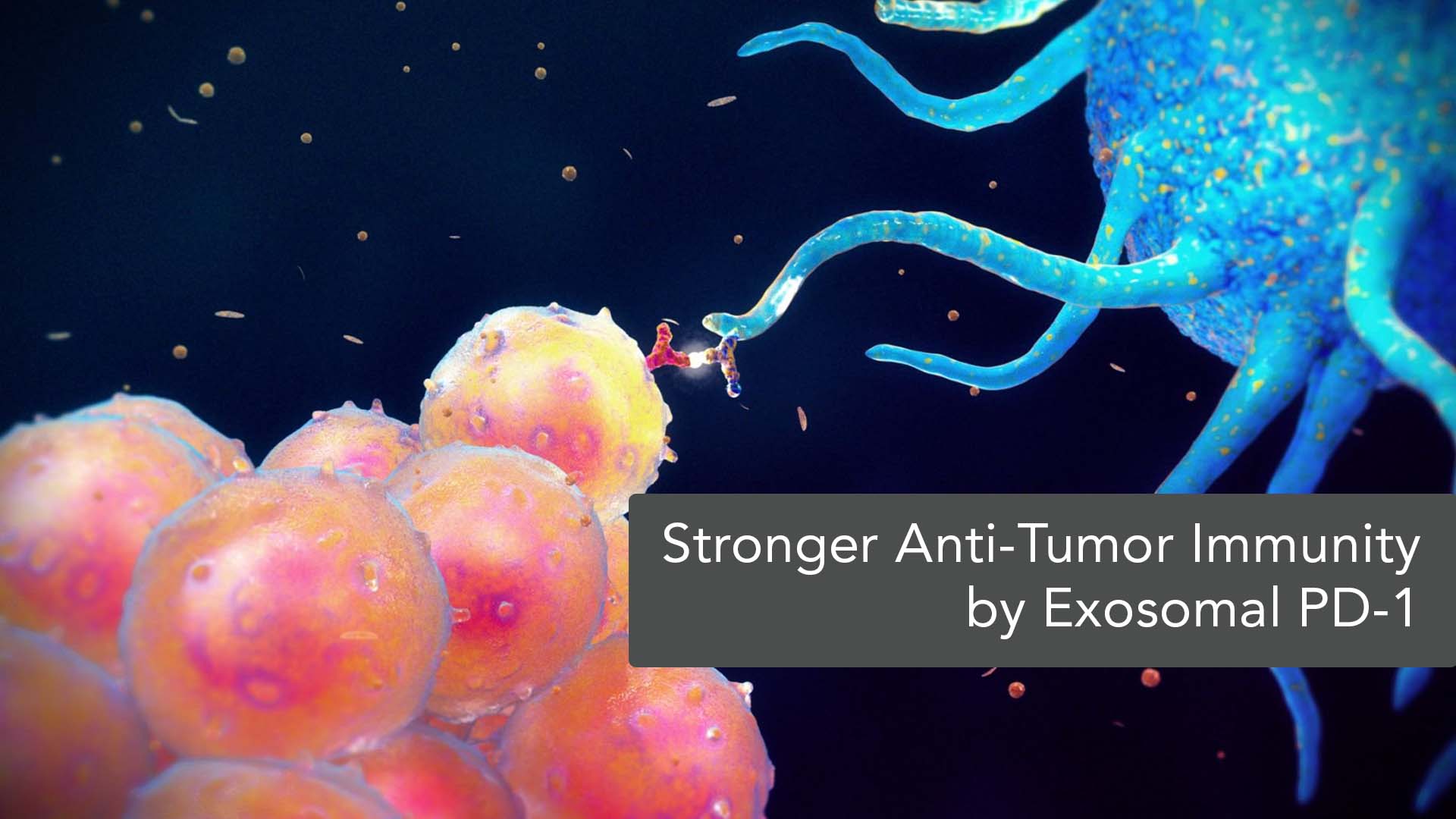Role of Exosomal PD-1 in Anti-Tumor Activity and Attenuation of Immune Suppression

The Novelty
This study discovered the potential of exosomal membrane-bound PD-1 (Exo-PD-1) in enhancing the cytotoxic activity of T cells against tumor cells and, simultaneously, attenuating immune suppression in triple-negative breast cancer (TNBC). Upon activation, Exo-PD-1 released by T cells were actively involved in two modes of PD-L1-blockade anti-tumor action, i.e. remotely binding to exosomal PD-L1 and directly binding to PD-L1 on tumor-cell surface. The Exo-PD-1 binding on the tumor-cell surface induced clathrin-mediated endocytosis (CME) of PD-L1. Other than creating an entry point for Exo-PD-1 to enter the TNBC cells, CME of PD-L1 also reduced the amount of surface PD-L1 available during subsequent direct interaction between T cells and tumor cells. The protective role of Exo-PD-1 against the anti-tumor immune dysfunction induced by PD-L1 in TNBC has been confirmed by in vitro and in vivo studies. As part of the expansion of research scope, future studies ought to examine whether the tumor-infiltrating lymphocytes (TILs) markers of T cell apoptosis and exhaustion are contained by T cell-derived exosomes, and whether they bear similar immune function to that of Exo-PD-1 in fighting tumor.
The Background
Programmed cell death protein 1 (PD-1) is a protein on the surface of T and B cells. Although PD-1 is essential in preventing autoimmune diseases, it also prevents cancer cells from being killed. In contrast, the expression of PD-1 showed positive correlation to the survival rate of patients with triple-negative breast cancer (TNBC). These contradicting yet intriguing observations made scientists wondered if the PD-1 on T cells comprises uncovered potential associated to the inhibition of cancer cells. Meanwhile, past studies also reported that exosomes derived from T lymphocytes were involved in the regulation of immune reaction. Upon investigating the role of T cells-derived exosomes in suppressing TNBC, this research elucidated how exosomal PD-1 protects against the anti-tumor immune dysfunction induced by PD-L1 in TNBC. Notably, this discovery may lead to the development of therapeutic strategies which enhance cytotoxic activity against tumor cells and attenuate immune suppression simultaneously.
The SDG Impact
As long as cancers exist, 10 million lives are lost globally each year and this number can be lowered only by more effective therapeutic strategies. With the proven potential of Exo-PD-1 in treating triple-negative breast cancer (TNBC), promising cancer therapies can be developed based on the modification of exosome surface. Moreover, the discovery of this study also proves the importance of immune suppression attenuation in fighting cancers (UNSDG 3: Good Health & Well-Being).
